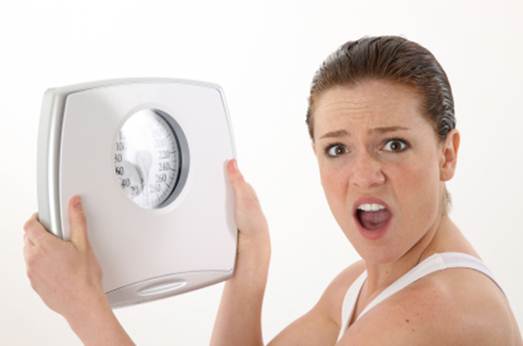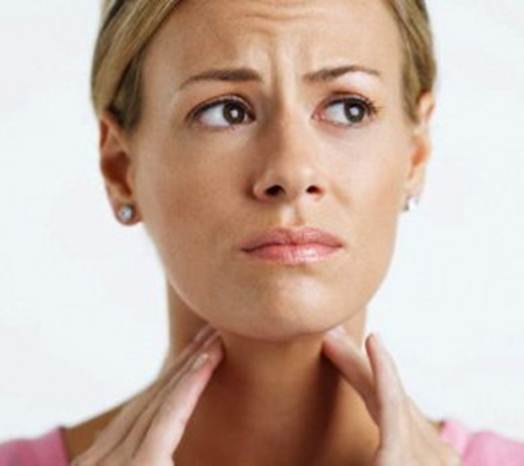Tired of those kilos hanging around – at
least according to your scales? Learn the secrets of the weigh – in.
You've nibbled your way through healthy
low-fat meals for weeks and put in some serious hours at the gym to shave off
the kilos. But the scales haven't budged - not one tiny little bit. In fact,
when you stepped ever so tentatively on them just yesterday morning those evil
little numbers jumped up a half a kilo! Small variations in your body weight
are perfectly normal - you might have been eating a few carbohydrate-loaded
meals, you could be a little constipated or dehydrated. Eating more salt, an
under active thyroid, even increasing exercise ... there are many reasons
people have unexplained and sometimes confusing weight increases when they step
on the scales. Some experts tell us you can even blame it on the weather.
Forecast: weight gain
Across the globe, kilo creep in chilly
weather has been blamed on many things - not getting outdoors and exercising
for one. Some researchers claim there's another scientific reason, lack of
sunshine producing Vitamin D. This vitamin is said to boost Lepin, a hormone
that signals a feeling of fullness to the brain. However, not all researchers
agree. Biochemist Dr Helen Macdonald, from University of Aberdeen, has studied
the link between obesity and low circulating Vitamin D in the body and says the
results are inconclusive. "It may be due to the Vitamin D stored in fat
stores which are inaccessible, or due to differences in how the Vitamin D is
carried in the blood," she says.

Forecast:
weight gain
Catch some sun when you can so you can
boost your vitamin D, and get active. Dianne King, exercise physiologist, says
rain, hail or shine, and no matter what the season, there's no excuse for
turning into a couch potato. "Get moving and you'll soon see the results
that you're looking for," she says. "Remember even elite athletes
don't get to take time off in winter, eat whatever they want and look that great!"
Staying well hydrated is important too. If you're dehydrated your body hangs
onto every precious drop and you'll retain fluid, equating to increased water
weight, and up those numbers climb.
Under active thyroid
Hypothyroidism affects around one in seven
women. It's caused by the body not producing enough thyroid hormone. Early
symptoms include tiredness, poor concentration and yes, a slow and steady
weight gain. It's an insidious disease and a condition that's often
misdiagnosed, says Beverley Garside, president of the Australian Thyroid
Foundation. "Some women get to the point where they're virtually starving
themselves and still gaining weight," she says. "Often doctors write
it off as early menopause, or depression, in which case they'll prescribe
anti-depressants which only exacerbates the weight gain."

Under
active thyroid
Reduce your risk by ensuring you have
enough iodine in your diet - eat iodine-infused bread, salt and plenty of
iodine-rich seafood and dairy. If you have a family history of thyroid issues
or is experiencing symptoms - ask your doctor for a blood test. Once diagnosed,
the condition can be stabilised with medication.
Monthly meltdown
Most women could confess to experiencing
food cravings before they get their period. It would be OK if it was fresh
fruits and vegies your body hungered for, but sadly no, it's usually sugary,
refined carbs. As if that wasn't enough, you may also gain water weight through
fluid retention.
"Holding excess water and salt can
fluctuate your weight by a kilo or two, as a result of altered hormonal levels
in the kidneys," says Professor John Eden, gynaecologist from the Women's
Health and Research Institute of Australia. But, the good news is it's only
temporary.

Most
women could confess to experiencing food cravings before they get their period
You might not feel like it, but exercising
dramatically reduces PMS symptoms, including the temptation of the
refrigerator. "Exercise is beneficial due to the neurotransmitter effect
of exercise on the brain's feel-good chemicals," says Dr Elizabeth
Farrell, gynaecologist and acting medical director at Jean Hailes Foundation
for Women's Health. Try to resist the urge to eat refined carbs and fuel your
body with nutrient-rich grains, pulses and soy. "Foods like these contain
natural plant-oestrogens which can help with PMS symptoms," she says.